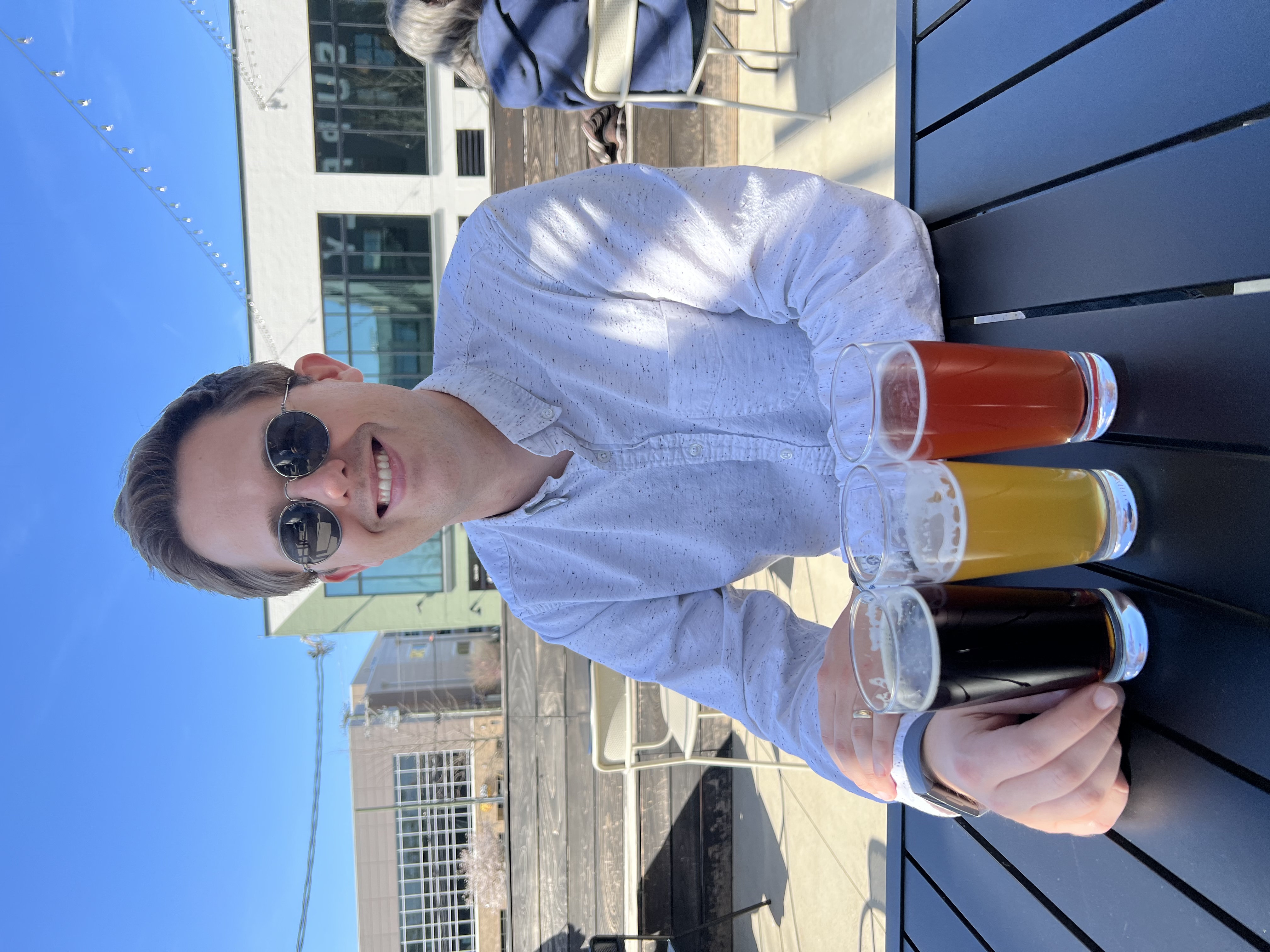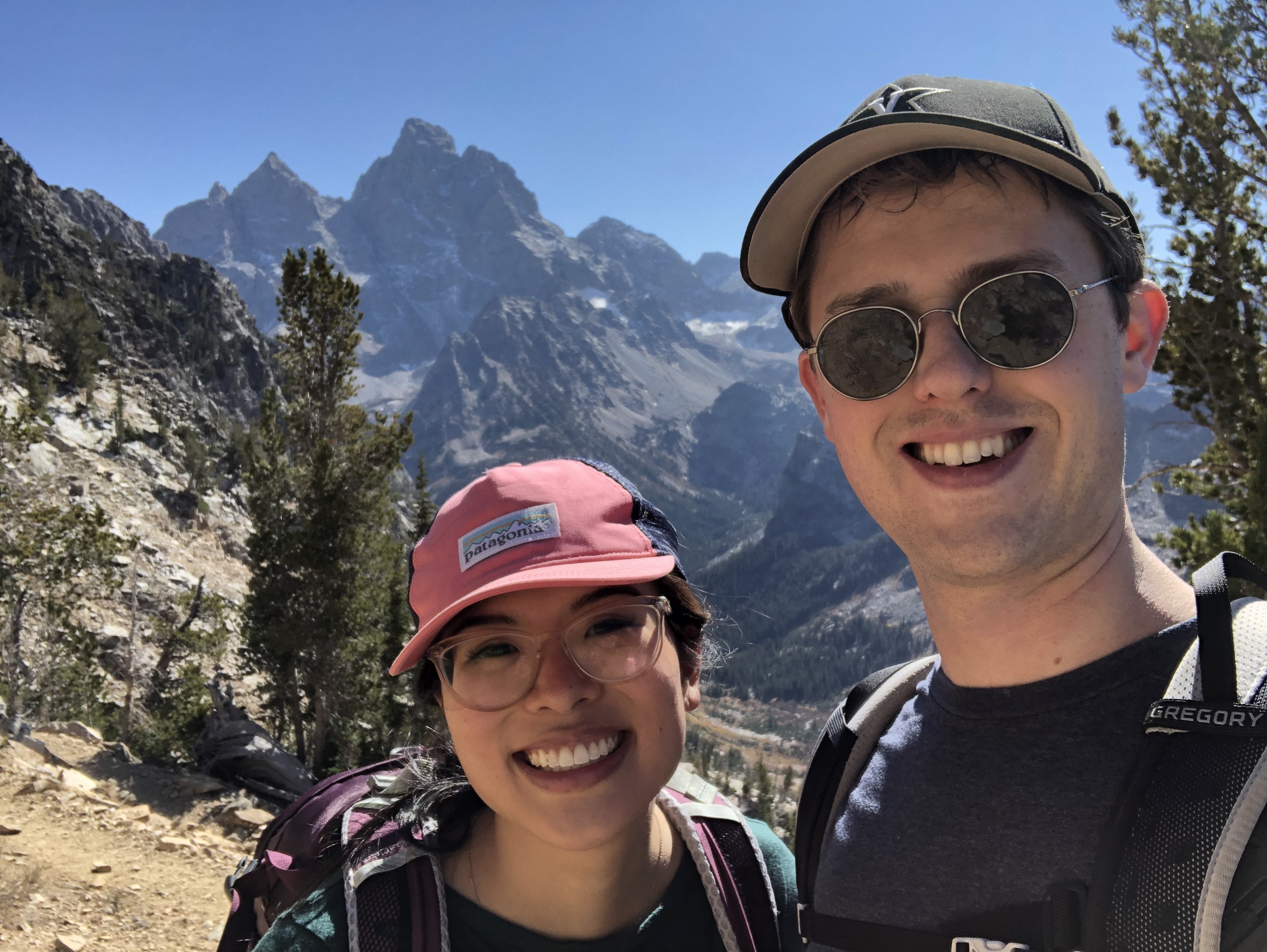Seth Zost, Ph.D. is a postdoctoral fellow in the James Crowe lab at the Vanderbilt Vaccine Center.
Seth graduated from the University of Pennsylvania in 2013 with a B.A. in Biochemistry and History and a M.S. in Chemistry. Following graduation, Seth joined the lab of Dr. Scott Hensley at the University of Pennsylvania and studied human antibody responses to influenza A viruses and the viral evasion of pre-existing immunity. Seth defended his PhD in 2018. In the lab, Seth is continuing to study antibody responses against respiratory viruses with special interests in defining conserved sites on viral proteins that are targeted by human antibodies and identifying how prior exposure shapes human antibody responses against viruses like influenza and SARS-CoV-2.
An interview with
our scientist:

Learn more about
his research:

Whose lab are you in, and what made you choose their lab?
I am in the lab of Dr. James Crowe in the Vanderbilt Vaccine Center. I did my PhD studying influenza virus evolution and escape from human immunity, and I joined the Crowe Lab as a postdoctoral fellow because of their longstanding expertise in studying human antibodies to many different human pathogens.
In a nutshell, what do you study?
I study human antibody responses to respiratory viruses, with a special focus on influenza and SARS-CoV-2.
Why is your research important? What is its larger impact, and/or how do you foresee it impacting public health?
The past year has reminded us just how important vaccines are for protecting us against respiratory viruses like flu or SARS-CoV-2, but we know that those viruses are able to evolve to escape pre-existing immunity, and that we can be reinfected repeatedly over the course of our lifetimes. In a broader context my work has contributed to our understanding of the sites on the virus targeted in human antibody responses, how the virus escapes antibody responses, and helps shed some light on how we could design vaccines or therapeutic monoclonal antibody combinations to corral viral evolution and enhance protection from disease.
In particular, two of the antibodies our group discovered in 2020 form the basis of EVUSHELD, a combination of two monoclonal antibodies developed by AstraZeneca that target the SARS-CoV-2 spike protein. EVUSHELD is currently in use for pre-exposure prophylaxis in individuals who are immunocompromised or unable to be vaccinated, and as a result cannot make their own protective neutralizing antibody response.
When you were 5, what did you want to be when you grew up?
It’s a little hard to remember! I think I wanted to be a medical doctor or scientist, but of course I didn’t really know what that would entail. I think I knew that I wanted my career to help people in some way but obviously I had a lot to learn about how my skills and talents aligned with different career paths.
What was it about science that drew you to it?
When you make a scientific discovery, you may be the only person in the world who has figured out how that part of biology works, and you then have the privilege of sharing that finding with the world. I’ve had that happen to me at a couple different points in my career and that reward is what keeps you coming back to the lab bench.
What has been your biggest challenge as a scientist?
Being a research scientist can make you bounce from one emotional extreme to another. For example, you need to be optimistic that a given experiment could work, but once you get the data you need to rigorously consider all possibilities, including that you made a mistake or the results aren’t real. It’s a weird mental place to try to get into, where you simultaneously care a lot about what you’re working on but also try to keep your self-worth separate from the success or failure of your experiments. That’s something I’ve struggled with periodically during my career (and I don’t think I’m alone in that!)
What's next for you?
My goal is to run my own research group as a principal investigator at a research university or medical center. I’m currently getting ready for the academic job market and defining some unanswered questions about influenza and SARS-CoV-2 that could form the basis of my own lab.
Best way to spend time while waiting on an experiment to finish:
Twitter!
What are you looking forward to doing most, once the pandemic is under control, and life starts to return to a state of normalcy?
My wife and I got married in a very small, socially-distant pandemic wedding in the fall of 2020, but with the different waves of SARS-CoV-2 variants we haven’t had the chance to take an extended honeymoon, preferably overseas. We’re both hoping to have that chance in the next year or so!

